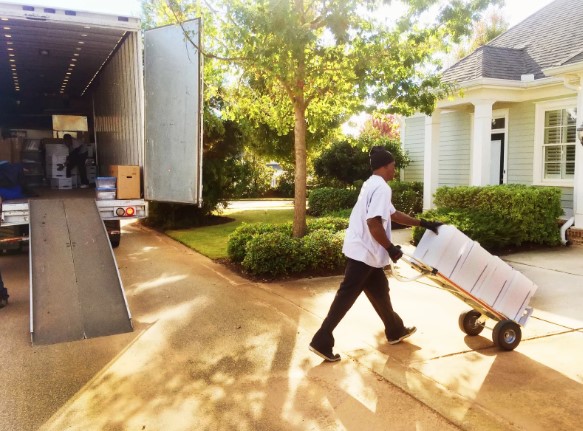Choosing the right moving company in Miami is a crucial step toward a stress-free relocation, whether you’re headed to Coconut Grove or Palm Beach. The industry is competitive, but the difference between a seamless move and a disaster often lies in the details. Before trusting your belongings to any team, it’s vital to probe deeper, challenge assumptions, and walk away only after every question has been answered to your satisfaction. In the heart of South Florida’s moving boom, due diligence can save you money, time, and endless frustration. That’s why those searching for reliable movers should always research carefully and consider the offerings from providers like moveshire.com Moveshire stands as a reference point for transparency in a market where standards can vary. Here’s what you need to ask—before you sign anything.
Understanding Your Moving Estimate: Clarity Before Commitment
Getting an estimate for your move is more than just receiving a price—it defines your expectations. In Miami, the cost of hiring a moving company can fluctuate wildly between flat-rate and hourly arrangements, so understanding the estimate structure is key. Always ask whether your quote is binding, non-binding, or guaranteed not-to-exceed. Each type offers a different level of price protection.
A reliable local mover will want to perform an in-person or virtual survey of your possessions. This ensures the cost reflects the actual volume, weight, and any special handling required for fragile items or high-value objects. Avoid movers who offer quotes without assessing your unique situation.
Inquire about what is included in the estimate. Does it cover packing materials, labor, wardrobe boxes, stair fees, fuel surcharges, or storage if there’s a delay in closing dates? Transparent companies in Florida will itemize these elements clearly in their proposal.
Take time to ask about potential additional charges. Miami’s urban landscape—condo elevators, parking limitations, and hurricane season delays—can result in unforeseen costs. Clarify how overtime, extra stops, or last-minute changes might affect your final bill, and request everything in writing to eliminate surprises on moving day.
Most importantly, don’t hesitate to request references or check online reputation. Reading recent reviews on platforms like the BBB or Google proves invaluable for understanding a mover’s real-world reliability in the Miami area.
Verifying Licensing, Insurance, and Professional Credentials in Florida
Choosing a moving company in Florida means you must confirm more than just their business name and logo. Ask for the mover’s Florida Department of Agriculture and Consumer Services registration number and verify it directly through the state’s official database. For interstate moves, ensure your company is registered with the Federal Motor Carrier Safety Administration (FMCSA) and can produce a valid USDOT number.
Don’t settle for verbal reassurances regarding insurance. Ask for proof of liability and cargo coverage, as well as detailed explanations about what is and isn’t covered if loss or damage occurs. Some movers tout “full coverage,” but only provide minimal basic protection. For valuable or irreplaceable items, you may need to arrange additional coverage.
Investigate the training, background checks, and experience of the actual crew handling your possessions. Are the movers employees or contractors? How many years have they worked with the company? Miami’s multicultural, rapidly growing market has attracted countless new entrants—some reputable, others not. A seasoned, full-time team is often a sign of stability and professionalism.

If you’re moving long distance or within Florida, clarify whether your move will be subcontracted out. Many large chains and brokers hand off jobs to third-party crews, making accountability murky. Demand direct answers and documentation.
For those considering reputable options, moveshire.com offers a comprehensive house relocation company service and ensures clients receive clarity regarding insurance, licensing, and the backgrounds of every mover involved house relocation company. This meticulous approach helps you avoid the pitfalls of dealing with unregistered or uninsured providers—a common risk in South Florida.
What About Specialty Items and Unique Requests?
If your move includes antiques, pianos, art, or bulky items, ask about specific protocols and additional insurance. Does the company have the expertise and equipment required for unique challenges such as historic furniture or luxury electronics? Local climate concerns, such as high humidity, can impact how sensitive goods are packed and transported.
The Top 10 Essential Questions to Ask Movers in Miami
Before you select a mover in the Miami region, ask these targeted questions to ensure you’re making the right decision for your relocation needs. Each point in this checklist addresses crucial details that can significantly impact your experience.
- Is your company fully licensed and insured for operations in Florida and for interstate moves?
- Can you provide a detailed, written estimate after surveying my home and belongings?
- What is included in your quote, and what might incur additional charges?
- Will you perform the move with your own crew, or subcontract to another company?
- Can you supply recent customer references in Miami or South Florida?
- How do you handle damages or lost items, and what claims process is available?
- Are there restrictions or surcharges for high-rise buildings, elevator use, or parking in my neighborhood?
- What experience do you have with specialty items such as pianos, antiques, or fine art?
- How do you ensure the background and training of your moving staff?
- What is your procedure for delays due to weather, especially during hurricane season?
Providers such as moveshire.com also offer tailored moving services for communities like Palm Beach https://moveshire.com/location/florida/palm-beach/ ensuring that you can clarify these points before your moving day arrives.
Avoiding Moving Scams and Protecting Your Belongings
Miami’s fast-paced market attracts both reputable movers and unscrupulous operators. Protect yourself by insisting on clear contract terms and refusing to pay large deposits upfront. Genuine movers typically request a modest deposit or payment upon delivery—never the entire sum in advance.
Always ask for the company’s physical business address and visit the office if possible. Scammers often use vague contact information, answering services, or P.O. boxes. Insist on a written bill of lading and review every clause. If anything is unclear or missing, request clarification before signing.
Trust your instincts during communication. A moving company that dodges questions, rushes your decisions, or refuses to provide credentials is a warning sign. In South Florida, reputable local movers will gladly address all concerns transparently and welcome customer scrutiny.

Final Thoughts: Peace of Mind for Your Florida Move
Smart preparation makes all the difference when entrusting your home and valuables to movers. Armed with the right questions and expectations, you can confidently choose a reputable provider. In Miami and throughout Florida, demanding clear answers and verifiable credentials is your best defense—ensure you never sign a moving contract until you’re fully informed and satisfied with your choice.
